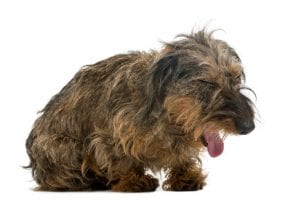 Overweight Cats and Dogs: When dogs and cats become older and either become less active or spend more time inside, they are much like the rest of us: prone to accumulating weight. On the other hand, keeping dogs and cats from gaining too much weight is crucial. There are a lot of health problems that overweight dogs could have, and it can ruin their fun and healthy lives.
Overweight Cats and Dogs: When dogs and cats become older and either become less active or spend more time inside, they are much like the rest of us: prone to accumulating weight. On the other hand, keeping dogs and cats from gaining too much weight is crucial. There are a lot of health problems that overweight dogs could have, and it can ruin their fun and healthy lives.
The prevalence of obesity in cats and dogs exceeds 50%, making it one of the most prevalent health issues treated by veterinarians. When it comes to overweight pets, the majority of owners are blissfully unaware. So, how can you tell whether your canine or feline friend needs to trim down? How can you encourage your beloved pet to shed those excess pounds?
Overweight Cats and Dogs: Signs That You Must Pay Attention to
Obesity in cats and dogs might be difficult to see, but once you do, it’s time to start making adjustments to your pet’s nutrition and way of life. If you have any worries about your pet’s weight, please see your veterinarian in Port Kennedy, Rockingham.
Your canine may no longer leap or have trouble getting in and out of the litter box, while your feline friend may be eating more than usual. Perhaps they are less active and lethargic now than they were before. If your pet is overweight, you may notice any of these symptoms.
Causes of Obesity in Pets
Some causes of weight growth, like those in people, are beyond your pet’s control; they include things like breed, gender, age, and heredity. Older cats and dogs may gain weight for a variety of reasons, including inactivity, boredom, and overeating.
The most common reasons why dogs become overweight include overeating, eating the wrong foods, and not getting enough exercise. The good news is that pet owners have control over and can alter these factors.
The Health Risks of Obesity for Your Pet
Overweight or obese cats and dogs are at risk of:
- Living a shorter life
- Being less active and healthy
- Joint and mobility problems
- Heart, liver and bladder conditions
- Skin problems and a lower resistance to infection
- Problems during surgery and anaesthesia
- Developing diabetes and arthritis
- Becoming bored and disinterested in exercise and play
Keeping Your Pet’s Weight in Check
A trip to the clinic is in order if you have any concerns about your canine or feline friend’s weight or if you need assistance controlling your pet’s weight. Not only may they advise you on significant lifestyle changes, but they can also suggest a premium, vet-approved pet food.
In this way, you may limit your pet’s caloric intake without sacrificing any of the vital nutrients they need.Your pet’s activity levels, sleep, and general quality of life will all quickly improve.
Also, make sure your dog or cat is going in for checkups at the vet on a regular basis; preventive medicine helps pets live longer, healthier lives.
Dietary Advice for Pets in Port Kennedy
Port Kennedy Veterinary Hospital offers a range of affordable wellness packages to Port Kennedy and Rockingham locals that provide regular preventative healthcare, including health monitoring for overweight pets.
You may also get helpful, realistic advice on how to cut down on your pet’s food consumption from the team’s experienced veterinarians. If your pet is overweight, it’s best to see a vet for help.




